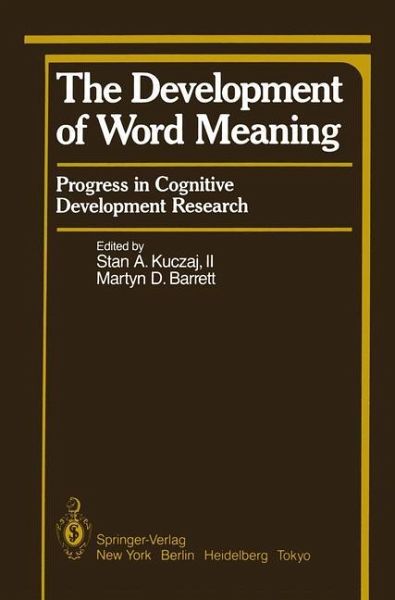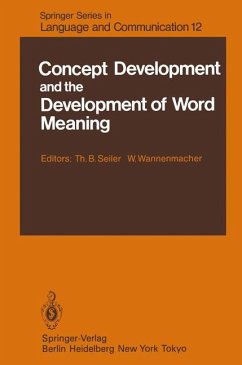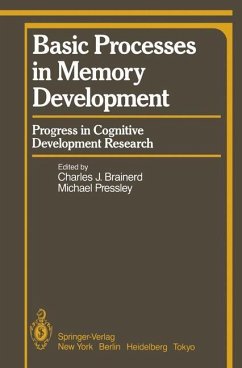
The Development of Word Meaning
Progress in Cognitive Development Research
Herausgegeben von Kuczaj, Stan A. II; Barrett, Martyn D.
Versandkostenfrei!
Versandfertig in 1-2 Wochen
39,99 €
inkl. MwSt.

PAYBACK Punkte
20 °P sammeln!
For some time now, the study of cognitive development has been far and away the most active discipline within developmental psychology. Although there would be much disagreement as to the exact proportion of papers published in develop mental journals that could be considered cognitive, 50% seems like a conserva tive estimate. Hence, a series of scholarly books devoted to work in cognitive development is especially appropriate at this time. The Springer Series in Cognitive Development contains two basic types of books, namely, edited collections of original chapters by several autbors, and ori...
For some time now, the study of cognitive development has been far and away the most active discipline within developmental psychology. Although there would be much disagreement as to the exact proportion of papers published in develop mental journals that could be considered cognitive, 50% seems like a conserva tive estimate. Hence, a series of scholarly books devoted to work in cognitive development is especially appropriate at this time. The Springer Series in Cognitive Development contains two basic types of books, namely, edited collections of original chapters by several autbors, and original volumes written by one author or a small group of authors. The flagship for the Springer Series is a serial publication of the "advances" types, carrying the sub title Progress in Cognitive Development Research. Each volume in the Progress sequence is strongly thematic, in that it is limited to some well-defmed domain of cognitive-developmental research (e. g. , logical and mathematical development, development of learning). All Progress volumes will be edited collections. Editors of such collections, upon consultation with the Series Editor, may elect to have their books published either as contributions to the Progress sequence or as sepa rate volumes. All books written by one author or a small group of authors are being published as separate volumes within the series. A fairly broad defmition of cognitive development is being used in the selec tion of books for this series.












